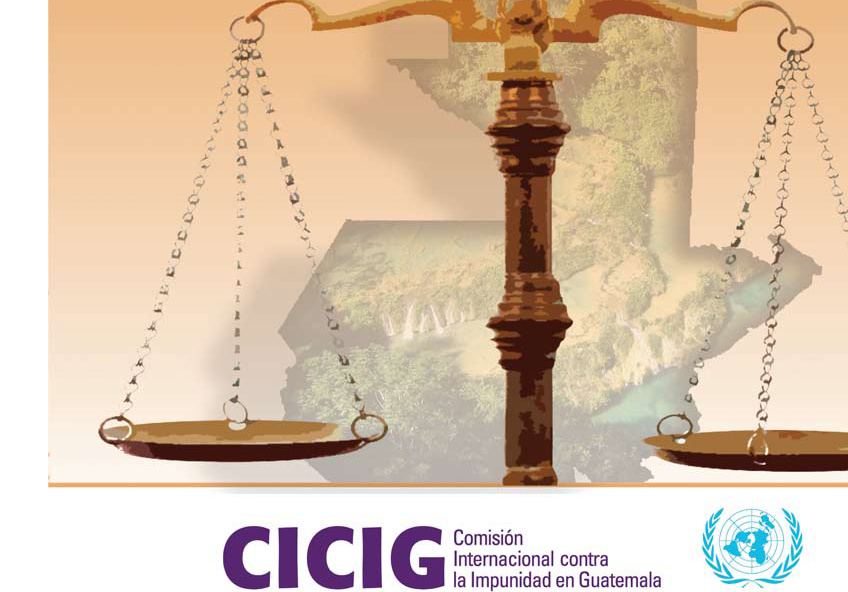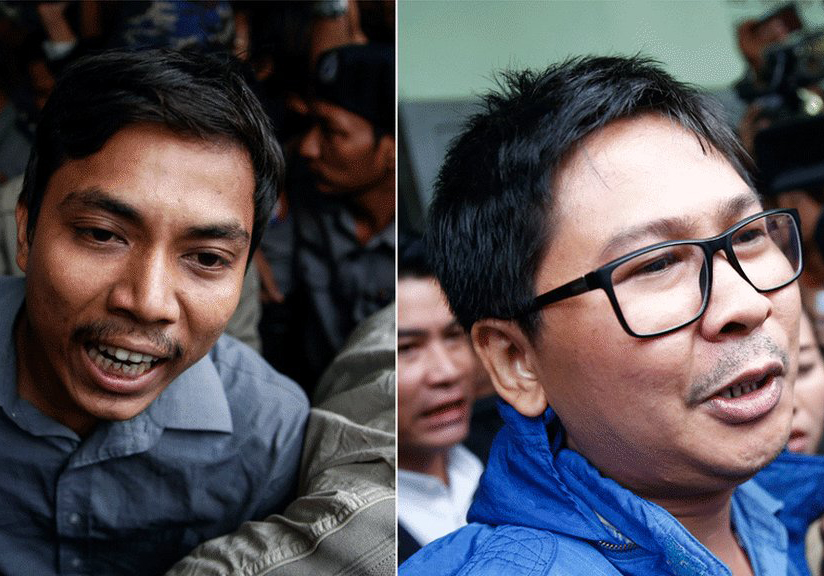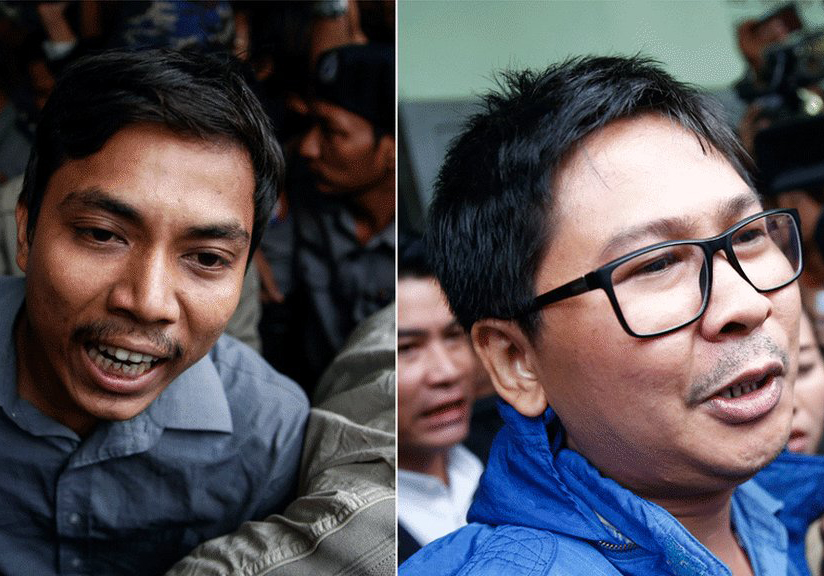
Sep 5, 2018 | Noticias
Hoy la CIJ firmó una declaración conjuntamente con una docena de otras organizaciones internacionales basadas en Europa que cooperan en Guatemala, condenando la decisión del Presidente Jimmy Morales de no renovar el mandato de la Comisión Internacional Contra la Impunidad en Guatemala (CICIG).
La declaración también repudia la decisión subsecuente del Presidente Morales de impedirle al Comisionado Iván Velásquez (foto) regresar al país.
La CICIG ha realizado contribuciones significativas al trabajo de la Fiscalía, el reforzamiento del estado de derecho y la lucha contra las redes de corrupción.
La declaración expresa una gran preocupación de que, el 31 de agosto del 2018, el gobierno haya recurrido a tanques y policías fuertemente armados afín de intimidar al personal de la CICIG y además a ciudadanos/as guatemaltecos/as, al anunciar la decisión de no renovar el mandato de la CICIJ.
La declaración agrega: “La imagen del Presidente Jimmy Morales rodeado de militares y policías en la conferencia de prensa evoca memorias de golpes de estado y dictaduras militares durante los años negros de conflictos armados internos”.
Las organizaciones firmantes hacen un llamado a la Unión Europea y sus Estados miembros para exigir que el Estado de Guatemala cumpla con sus obligaciones internacionales y que garantice las condiciones necesarias para que el Comisionado Iván Velásquez y la CIGIC puedan continuar su trabajo de manera segura e independiente.
Guatemala-Statement on decision about CICIG and Velasquez-News-2018-SPA (texto completo de la declaración, en pdf)

Sep 4, 2018 | News
The ICJ today condemned the public caning of two women, a punishment imposed upon them by the Terengganu High Court after conviction on charges of ‘attempting to have sexual intercourse’.
The ICJ called on the Government of Malaysia to immediately abolish the practice of caning as it constitutes a form of cruel, inhuman or degrading punishment prohibited under international human rights law and standards.
Furthermore, it also called on the Government to ensure that its laws, policies and practices at the local, state, and federal levels are in full compliance with its international legal obligations, including under the Convention on the Elimination of all forms of Discrimination against Women (CEDAW).
On 3 September 2018, two women, aged 23 and 33, were publicly caned in front of a hundred people in Terengganu, a coastal state of Malaysia, located northeast of Kuala Lumpur.
The two women were convicted under Section 30 of the Syariah Criminal Offences (Terengganu) Enactment 2001, for the crime of ‘Musahaqah’ (sexual relations between female persons).
“This punishment is a clear violation of Malaysia’s obligations to prevent, prohibit and prosecute all forms of torture and other cruel, inhuman or degrading treatment or punishment. The Government of Malaysia should immediately abolish the practice of corporal punishment, which has been condemned by international authorities such as the UN Human Rights Council’s Special Rapporteur on torture,” said Emerlynne Gil, ICJ’s Senior International Legal Adviser.
“It is equally deplorable that Malaysia continues to criminalize consensual same sex relations. The criminalization of private consensual sexual activities – whatever the sex, gender identity and sexual proclivities of those involved, and whatever the actual sexual practices – violates international human rights law. It also undermines women’s enjoyment of their rights to privacy, personal integrity, and equality,” she added.
The Human Rights Committee has said that criminalizing private sexual acts between consenting adults constitutes an arbitrary interference with privacy and cannot be justified.
It has also observed in a number of Concluding Observations that the criminalization of private consensual sexual activities between adults of the same sex violates the prohibition of discrimination, and the right of equality before the law.
The ICJ also notes that early this year, the CEDAW Committee recommended to Malaysia to “take effective measures to ensure that civil law and Syariah law are in full compliance with the provisions of the Convention at local, state, and federal levels” so as to guarantee the rights of all women throughout the country.
The ICJ calls on the Government of Malaysia to abide by its obligations under international law and follow through with its commitment to human rights, non-discrimination and equality by abolishing the sentence of caning and the criminalization of consensual same sex relations in the country.
Contact
Emerlynne Gil, ICJ Senior International Legal Adviser, t: +66 840923575, e: emerlynne.gil(a)icj.org
Background
On 8 April 2018, religious state authorities arrested the two women who were in a car and accused them of preparing to ‘commit sexual acts’, which is an offense in the State of Terengganu, under the Syariah Criminal Offences (Terengganu) Enactment 2001. The women pleaded guilty to the offence without being represented by a lawyer and did not appeal their case.
On 12 August 2018, the two women pleaded guilty and were sentenced by the Terengganu Shariah to a fine of RM3,300 ($800 USD) and six strokes of caning for attempting to have sexual intercourse.
This is the first case of caning of women for ‘Musahaqah’ (sexual relations between female persons) crime and its attempt in Malaysia and it marks a steady decline in Malaysia’s commitment to protect the rights of its sexual minorities and the members of the LGBTIQA community.
In Malaysia’s Criminal Procedure Code, under Federal law, it states that
“No sentence of whipping shall be executed by installments, and none of the following persons shall be punishable with whipping: (a) females;”
Malaysia’s Federal Constitution provides that Islamic law falls under the matters of State law, with the exception of the Federal States.
It is concerning that the Syariah legal system in Malaysia continues to carry out caning in a manner that is discriminatory against women, and women sexual minorities, as seen in the 2010 case, where three women were found guilty of ‘illicit sex’ by the Kuala Lumpur Syariah Court, as well as the continuing use of Syariah legal enactments to harass, intimidate and prosecute the transgender community in Malaysia.

Sep 3, 2018 | News
The Yangon District Court’s decision today to sentence Reuters journalists Wa Lone and Kyaw Soe Oo to seven years’ imprisonment for violating the Official Secrets Act deals a massive blow to human rights and the rule of law in Myanmar, said the ICJ.
“The Court’s decision effectively punishes these two courageous journalists for exposing human rights violations, following a grossly unfair trial,” said Frederick Rawski, Asia Pacific Director for the ICJ.
“The decision is a miscarriage of justice that inflicts needless suffering on them and their families, threatens freedom of expression, damages Myanmar’s global standing, and undermines its justice institutions all at once,” he added.
The ICJ has monitored the case since the journalists’ initial detention in December 2017.
As previously noted by the ICJ, the detention and trial has violated numerous basic fair trial guarantees.
The prosecutors had a duty to drop charges and the judge should have dismissed the case given the lack of evidence and the unlawfulness of detention because of fair trail rights violations.
“The case is emblematic of how the justice system ends up reinforcing rather than challenging military impunity,” said Rawski.
“The result undermines government claims that it can deliver accountability for human rights violations on its own, and does nothing to build trust that justice system can act independently and impartially after emerging from decades of military rule,” he added.
Members of security forces generally enjoy impunity for the perpetration of human rights violations, including for crimes under international law.
The ICJ has previously reported that victims and their families, as well as journalists, often face retaliation for publicizing human rights violations by the military.
Wa Lone and Kyaw Soe Oo were arrested in December 2017, and held incommunicado for nearly two weeks, before being charged under the colonial-era Official Secrets Act for allegedly possessing documents related to the operations of security forces in northern Rakhine State, during “clearance operations.”
The two reporters had been reporting on human rights violations in Rakhine State, including the killing of Rohingya by the military in Inn Dinn Village.
In a report issued just last week, the UN Independent International Fact Finding Mission found that security forces had perpetrated crimes under international law during these operations, including crimes against humanity and possibly the crime of genocide.
The detention and prosecution of anyone, including journalists, based solely on the collection and publication of evidence relevant to serious human rights violations, is a violation of international law and standards on freedom of expression, the right to participation in public affairs and on the role of human rights defenders.
Legal options remaining for the journalists include appealing of today’s decision, and requesting a Presidential amnesty.

Sep 3, 2018 | Communiqués de presse, Nouvelles
La décision du Tribunal de District de Yangon de condamner aujourd’hui les journalistes de Reuters, Wa Lone et Kyaw Soe Oo, à sept ans d’emprisonnement pour violation de la loi sur les secrets officiels porte gravement atteinte aux droits de l’Homme et à l’état de droit au Myanmar.
“La décision de la Cour punit dans les faits ces deux journalistes courageux pour avoir dénoncé des violations des droits de l’Homme, à la suite d’un procès manifestement inéquitable”, a déclaré Frederick Rawski, directeur de la CIJ pour l’Asie-Pacifique.
“La décision est une erreur judiciaire qui leur inflige des souffrances inutiles ainsi qu’à leurs familles, menace la liberté d’expression, porte atteinte à la réputation mondiale du Myanmar et sape ses institutions judiciaires en même temps”, a-t-il ajouté.
La CIJ a suivi l’affaire depuis la détention initiale des journalistes en décembre 2017.
Comme indiqué précédemment par la CIJ, la détention et le procès ont violé de nombreuses garanties fondamentales relatives à l’équité des procès.
Les procureurs avaient le devoir d’abandonner les accusations et le juge aurait dû rejeter l’affaire en raison de l’absence de preuves et de l’illégalité de la détention en raison de violations du droit à un procès équitable.
“L’affaire est emblématique de la manière dont le système judiciaire finit par renforcer l’impunité des militaires plutôt que de la remettre en cause”, a déclaré M. Rawski.
“Le résultat sape les affirmations du gouvernement selon lesquelles il peut rendre des comptes par lui-même sur les violations des droits de l’Homme, et ne fait rien pour que le système judiciaire agisse de manière indépendante et impartiale après des décennies de régime militaire”.
Les membres des forces de sécurité jouissent généralement de l’impunité pour la perpétration de violations des droits de l’Homme, notamment pour des crimes en droit international.
La CIJ a déjà rapporté que les victimes et leurs familles, ainsi que les journalistes, font souvent l’objet de représailles pour avoir diffusé des informations sur les violations des droits de l’Homme commises par l’armée.
Wa Lone et Kyaw Soe Oo ont été arrêtés en décembre 2017 et détenus au secret pendant près de deux semaines avant d’être accusés, en vertu de la loi sur les secrets officiels datant de l’époque coloniale, pour avoir prétendument été en possession de documents liés aux opérations des forces de sécurité dans le nord de l’État de Rakhine, lors “d’opérations de nettoyage”.
Les deux reporters avaient dénoncé des violations des droits de l’Homme dans l’État de Rakhine, notamment l’assassinat de Rohingyas par l’armée dans le village d’Inn Dinn.
Dans un rapport publié la semaine dernière (uniquement disponible en anglais), la mission d’enquête internationale indépendante des Nations Unies a constaté que les forces de sécurité avaient commis des crimes en droit international au cours de ces opérations, notamment des crimes contre l’humanité et peut-être un crime de génocide.
La détention et la mise en accusation de quiconque, y compris de journalistes, se basant uniquement sur la collecte et la publication de preuves pertinentes en matière de violations graves des droits de l’Homme constituent une violation du droit international et des normes relatives à la liberté d’expression, au droit de participer à la conduite des affaires publiques et au rôle des défenseurs des droits de l’Homme.
Les options légales disponibles pour les journalistes incluent de requérir à la décision d’aujourd’hui et demander une grâce présidentielle.

Sep 3, 2018 | News
The ICJ held a workshop on reforming Myanmar’s 1982 citizenship law in Yangon from 1 to 2 September 2018.
The workshop convened a group of international and national legal experts, human rights defenders, political scientist, academics and researchers to jointly consider the way forward to identify creative legal and non-legal advocacy approaches for reforming Myanmar’s 1982 Citizenship Law.
The ICJ, UN organs and civil society organizations, through research and legal analysis, have consistently found this law to be discriminatory both in its content and application.
Unlike many other laws promulgated during the military junta era of General Ne Win, this law remains in force. Its tiered hierarchy of citizenship has effectively rendered many individuals as second- or third-class citizens, or in some instances stateless.
In August 2017, the government’s own Advisory Commission on Rakhine State, chaired by the late Kofi Annan, recommended a review of the Citizenship Law. The recommendation was accepted by the Government of Myanmar in principle, but in practice this commitment has not been followed up by any implementing measures.
The workshop’s participants included academics, researchers, human rights defenders, political scientist, legal and non-legal experts of different ethnic and religious backgrounds from a range of organizations from the U.K, Spain, Australia, Kachin, Chin, Mandalay, Rakhine, and Yangon.
The ICJ’s legal adviser, Sean Bain, introduced the workshop by noting that legal recognition of nationality is central to the enjoyment of many human rights.
Noting that protecting the right to nationality is an essential part of the rule of law in any democratic society, he highlighted that too often it is members of minority groups who experience a violation of their human rights due to discriminatory laws and their application with regards to citizenship.
The ICJ’s legal researcher Dr. Ja Seng Ing presented the overview and assessment of the Citizenship Law, including problematic provisions and key institutional actors with authority in Myanmar.
Amal de Chickera, a Sri Lankan Human Rights lawyer and Co-Director of Institute on Statelessness and Inclusion, delivered an introduction on the International law and comparative studies and the approaches and strategies for law reform from international perspectives.
José María Arraiza, Information, Counselling and Legal Assistance Specialist, Norwegian Refugee Council, spoke about a number of approaches and strategies for legal reform, including imperative role of collective identities, inclusive dialogue and evidence based advocacy strategies with comparative international experiences.
Michelle Yesudas, a Malaysian Human Rights lawyer, shared good practices and lesson learned from application of strategic litigation in citizenship related cases in Malaysian context to raise the awareness of the public and also discussed potential strategies for pushing the legislative reform and enforcement of the law in Myanmar.
The ICJ’s legal adviser Daw Hnin Win Aung, facilitated a panel discussion where the Senior legal scholars and researchers from Myanmar also provided their perspectives, based on their own independent research and writing on the legal and non-legal opportunities and challenges for law reform in Myanmar.
Advocate lawyer, Daw Zar Li Aye highlighted the legal consequences of mixed-nationality marriage in Myanmar, for instance, the authorities used physical appearance of the children as a determining factor when considering provision of citizenship / documentation in practice.
The participants considered a wide range of issues relating to statelessness and citizenship in Myanmar with comparative case studies, including the varying approaches for law reform across the region to improve understanding of the advocacy target groups on the issue and potentially inform public policy.
The participants also recognized the importance of multidisciplinary approaches, including strategic litigation in citizenship related cases, for developing advocacy strategies for law reform and to increase knowledge and understanding of the general public on the issue.
This event is part of the ICJ’s ongoing efforts to convene civil society actors including lawyers to discuss critical human rights issues in Myanmar with a view to advancing the protection of human rights in the country.









